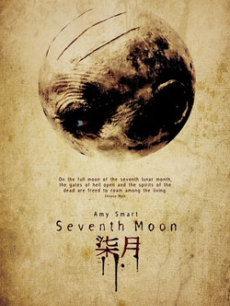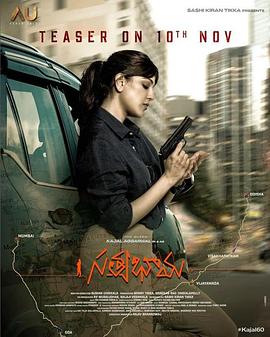简介
English Title: Zerograd
Original Title: Gorod Zero
Year: 1988
Country: Soviet Union
Language: Russian
Genre: Comedy, Drama, Mystery
Director: Karen Shakhnazarov
Screenwriters: Karen Shakhnazarov, Aleksandr Borodyanskiy
Music: Eduard Artemev
Cinematography: Nikolay Nemolyaev
Editing: Lidiya Milioti
Cast:
Leonid Filatov
Oleg Basilashvili
Vladimir Menshov
Armen Dzhigarkhanyan
Yuriy Sherstnyov
Evgeniy Evstigneev
Pyotr Shcherbakov
Aleksey Zharkov
Tatyana Khvostikova
Lena Zhanik
Aleksandr Bespalyy
Rating: 7.7/10
Eventuated before the eventual disintegration of the Soviet Union, Karen Shakhnazarov’s ZEROGRAD, his fifth feature, is a biting, if none too gripping allegory of a great nation’s impending about-turn from totalitarian statism to Western-influenced democracy.
Marooned in this Zerograd (“zero city”) is an engineer from Moscow, Alexey Varakin (Filatov), the film starts with him disembarking from a train, little does he know, he has descended into a rabbit hole. Alexey is an awfully nice soft touch, the straight arrow type that serves as audience’s proxy, and in the city, what he encounters is a bureaucratic, bizarre, authoritarian clutter of confusion and frustration, things are compounded after he becomes a key witness of a suicide (or is it? conspiracy theory is floated but unresolved), he is officially instructed not to skip town, and even condones the advice from the prosecutor that he should assume the identity of the dead man’s son (what’s the logic here?), so that he can be brought firsthand to see the declaration of a new epoch, and he might run but will he escape? All is foretold by an angelic young boy he meets before.
Shakhnazarov is political in quite an equivocal way, the old guard is represented by the prosecutor (Menshov, strenuously emoting conviction and later, humiliation with propriety), who holds forth on the lofty grail of communism (which is utterly intelligible and persuasive), but has no sway in front of the head of the city council (Shcherbakov) and the celebrated writer (Basilashvili), even his heroic suicidal act is a flameout, the Procrustean wind of change is irrefragable.
But is Shakhnazarov an ardent advocate of democracy? Judging solely from this film, it is safe to say that he retains a leery eye, he might have a liberal mind, but liberty isn’t something that can be pursued in its purest form, the Soviet Union is creaky and buckles under misrule, however, it has an immemorial spirit, an inherent statehood that its boogie-woogie children shall never forget.
If Shakhnazarov isn’t a supernal filmmaker of visual finesse and most members of its male-dominant cast is far too grim and starchy by simply performing in rote, whereas their opposite sex is dismallyreduced to peripheral ciphers, namely, a nude secretary, a glamorous woman functions merely as a chauffeur, or a voiceless matron whose sincere request of a dance is interrupted by the male intrusion, ZEROGRAD still remains a marvel to watch, not merely validated by Shakhnazarov’s sensible political concerns and his homegrown compassion, but also, more impressively, by the astonishing tableaux vivants which crop up in the midstream and near the coda (offering ironic, anachronistic remarks to further muddy the waters), credited to its production designer Lyudmila Kusakova. It takes some time for viewers to discern that those museum exhibitions are actually actors in heterogeneous costumes and under maquillage, betrayed by tiny movements that are almost imperceptible, what billows out is that strange aroma of “magical surrealism” that is ever so fertile in the Eastern European cinema edifice.
referential entries: Pavel Jurácek’s CASE FOR A ROOKIE HANGMAN (1970, 8.0/10); Emil Loteanu’s THE SHOOTING PARTY (1978, 6.4/10).
"<>""}
English Title: Zerograd
Original Title: Gorod Zero
Year: 1988
Country: Soviet Union
Language: Russian
Genre: Comedy, Drama, Mystery
Director: Karen Shakhnazarov
Screenwriters: Karen Shakhnazarov, Aleksandr Borodyanskiy
Music: Eduard Artemev
Cinematography: Nikolay Nemolyaev
Editing: Lidiya Milioti
Cast:
Leonid Filatov
Oleg Basilashvili
Vladimir Menshov
Armen Dzhigarkhanyan
Yuriy Sherstnyov
Evgeniy Evstigneev
Pyotr Shcherbakov
Aleksey Zharkov
Tatyana Khvostikova
Lena Zhanik
Aleksandr Bespalyy
Rating: 7.7/10
Eventuated before the eventual disintegration of the Soviet Union, Karen Shakhnazarov’s ZEROGRAD, his fifth feature, is a biting, if none too gripping allegory of a great nation’s impending about-turn from totalitarian statism to Western-influenced democracy.
Marooned in this Zerograd (“zero city”) is an engineer from Moscow, Alexey Varakin (Filatov), the film starts with him disembarking from a train, little does he know, he has descended into a rabbit hole. Alexey is an awfully nice soft touch, the straight arrow type that serves as audience’s proxy, and in the city, what he encounters is a bureaucratic, bizarre, authoritarian clutter of confusion and frustration, things are compounded after he becomes a key witness of a suicide (or is it? conspiracy theory is floated but unresolved), he is officially instructed not to skip town, and even condones the advice from the prosecutor that he should assume the identity of the dead man’s son (what’s the logic here?), so that he can be brought firsthand to see the declaration of a new epoch, and he might run but will he escape? All is foretold by an angelic young boy he meets before.
Shakhnazarov is political in quite an equivocal way, the old guard is represented by the prosecutor (Menshov, strenuously emoting conviction and later, humiliation with propriety), who holds forth on the lofty grail of communism (which is utterly intelligible and persuasive), but has no sway in front of the head of the city council (Shcherbakov) and the celebrated writer (Basilashvili), even his heroic suicidal act is a flameout, the Procrustean wind of change is irrefragable.
But is Shakhnazarov an ardent advocate of democracy? Judging solely from this film, it is safe to say that he retains a leery eye, he might have a liberal mind, but liberty isn’t something that can be pursued in its purest form, the Soviet Union is creaky and buckles under misrule, however, it has an immemorial spirit, an inherent statehood that its boogie-woogie children shall never forget.
If Shakhnazarov isn’t a supernal filmmaker of visual finesse and most members of its male-dominant cast is far too grim and starchy by simply performing in rote, whereas their opposite sex is dismallyreduced to peripheral ciphers, namely, a nude secretary, a glamorous woman functions merely as a chauffeur, or a voiceless matron whose sincere request of a dance is interrupted by the male intrusion, ZEROGRAD still remains a marvel to watch, not merely validated by Shakhnazarov’s sensible political concerns and his homegrown compassion, but also, more impressively, by the astonishing tableaux vivants which crop up in the midstream and near the coda (offering ironic, anachronistic remarks to further muddy the waters), credited to its production designer Lyudmila Kusakova. It takes some time for viewers to discern that those museum exhibitions are actually actors in heterogeneous costumes and under maquillage, betrayed by tiny movements that are almost imperceptible, what billows out is that strange aroma of “magical surrealism” that is ever so fertile in the Eastern European cinema edifice.
referential entries: Pavel Jurácek’s CASE FOR A ROOKIE HANGMAN (1970, 8.0/10); Emil Loteanu’s THE SHOOTING PARTY (1978, 6.4/10).
{else}工程师丽拉金来到了零城一个没有坐标的城市。那里的一切都令人费解。他发现厂长女秘书全身赤裸的坐在桌子后面打字,而来往经过的人谁也不感到奇怪。瓦拉金要求厂长满足他的一项要求,厂长满口答应,不过他说要和总工程师具体接洽,而女秘书告诉瓦拉金,总工程师在8个月前就已经淹死了。瓦拉金来到一家饭店用餐,厨师送上一个人头型的蛋糕,瓦拉金发现,那个“人头”竟和自己的头一模一样。瓦拉金正在惊愕时,厨师突然被打死了。随之而来的进行侦破的检察长告诉瓦拉金,厨师就是他的父亲……{end if}





